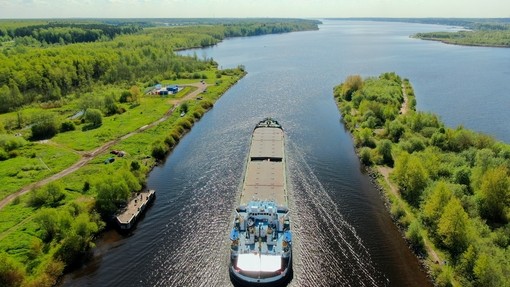OMV Petrom SA -v- Glencore International AG [2017] EWCA Civ 195 (27 March 2017)

Details
In this case, the Court of Appeal had to consider the straightforward but important point concerning the interest the court might award when a claimant’s CPR Part 36 offer was rejected but the claimant later achieved a greater award at trial.
Factual background
The underlying dispute between the parties concerned 32 shipments of oil made between 1993 and 1996. The defendant’s predecessor had supplied a blend of various crude oils of lesser quality, misleadingly described. As a consequence, the claimant commenced proceedings in the High Court for the tort of deceit.
On 9 April 2014 the claimant made a Part 36 offer to the defendant to settle the claim for US$35 million, inclusive of interest and costs. The defendant did not respond or accept the offer, and instead defended the claim to trial.
The first instance judge found that the defendant had acted unreasonably in the litigation and awarded the claimant significantly more than its Part 36 offer. Further, he awarded costs on the indemnity basis, interest on damages and costs and the sum of £75,000, under what was then CPR Part 36.14(3)(d), plus interest. Interest was awarded at an enhanced rate from the expiry of the Part 36 offer but at a lower rate than the maximum 10% allowed under the then CPR Parts 36.14(3)(a) and 36.14(3)(c). The judge held that the court could not penalise the defendant for the way it conducted the case by awarding the claimant more by way of enhanced interest than legitimately compensated the claimant.
The relevant CPR provisions
CPR Part 36.14 (now materially contained in the same form in CPR Part 36.17) provided as follows in circumstances where judgment against the defendant was at least as advantageous to the claimant as in a claimant’s Part 36 offer: the court would, unless it considered it unjust to do so, order that the claimant was entitled to under:
36.14(3)(a) interest at a rate not exceeding 10% above base rate for some or all of the relevant period starting with the date on which the relevant Part 36 offer period expired;
36.14(3)(b) its costs on the indemnity basis from the date on which the relevant period expired;
36.14(3)(c) interest on those costs at a rate not exceeding 10% above base rate;
36.14(3)(d) an additional amount not exceeding £75,000 as awarded by the court.
Legal issues
The claimant appealed against the rates that the judge ordered, on both the judgment sum and on the costs for the period between the expiry of the Part 36 offer until judgment, claiming that, because of the defendant’s conduct in the case, the judge ought to have awarded a rate of interest enhanced by the maximum amount of 10% per annum allowed under CPR 36.14(3)(a) and (c).
The claimant’s grounds were as follows:
- The judge had wrongly concluded that the essential function of CPR 36.14(3)(a), as to interest on the award, was compensatory so that the level of interest could not exceed what legitimately compensated the claimant for the disruption and difficulties of the litigation; and
- The judge had wrongly concluded that the essential function of CPR 36.14(3)(c), as to interest on costs, was to reflect the cost of money.
In both cases, the claimant said that the judge ought to have concluded that a party who had behaved unreasonably forfeited the opportunity of achieving a reduction in the rate of additional interest payable, as it was held by Lord Woolf in Petrotrade Inc -v- Texaco Ltd [2000 EWCA Civ 512, [2001] 1 WLR 947. The claimant argued that the power to award enhanced interest enabled the court to disapprove of and to discourage unreasonable conduct, that enhanced interest should be fixed at a level which created an appropriate incentive to settle, and that having regard to the defendant’s conduct and the absence of any meaningful incentives to settle, this was a clear case to award interest at the maximum level of 10% above base rate.
The defendant on the other hand maintained that the judge was correct in his ruling relying on Petrotrade and McPhilemy -v- Times Newspapers Ltd (Abuse of Process) [2001] EWCA Civ 871 to argue that enhanced interest was compensatory and not penal. Further, although CPR Part 36.14(3)(d), which allowed for an additional award of up to £75,000, was penal, it was relatively new, and its inadequacy in a case of this size was no reason for the court to overturn the compensatory basis of the rest of CPR 36.
Court of Appeal judgment
Sir Geoffrey Vos, Chancellor of the High Court (the Chancellor), with whom the other two members of the Court of Appeal agreed, made clear that there were four different orders that Part 36.14 allowed to be made in favour of a claimant in the claimant’s position unless the court considered it unjust to do so, taking all the circumstances of the case into account. These were: enhanced interest on the award, indemnity costs, enhanced interest on the indemnity costs and an additional amount up to £75,000.
He noted that this was a case in which the levels of interest were challenged rather than the decision to award enhanced rates of interest in the first place.
He further made clear that the cases of Petrotrade and McPhilemy were not binding on that court. Petrotrade because the facts were different and its ratio was simply that the relevant rule at the time did not apply where summary judgment had been granted. In McPhilemy the court’s comments regarding the basis of awarding enhanced interest were obiter and, as to award interest on costs, the court said that such interest on costs enabled the court to achieve a fairer result in respect of payment of costs made on account.
The award of enhanced interest under CPR Part 36.14(3)(a)
The specified rate of 10% was not a starting point but the maximum possible enhancement. The objective of the rule had always been to encourage good practice and incentivise claimants to make reasonable offers and defendants to accept them.
The Chancellor concluded that the award of enhanced interest was not purely compensatory and that the judge at first instance was incorrect in ruling otherwise. The fact that CPR 36.14(3)(a) was negatively formulated supported this view and, following the Jackson reforms, the whole thrust of the CPR was to use ‘both the carrot and the stick’. If it were right to say that the provision for additional interest was entirely compensatory the 10% cap would only rarely be engaged and probably only in unusual cases. First instance courts would be required to engage in a complex and unnecessary exercise to identify what the prolongation of the litigation had cost the successful party.
The court had a discretion to include a non-compensatory element to the award but the level of the interest awarded had to be proportionate to the circumstances of the case which might include (a) the time elapsed between the deadline for accepting the offer and judgment, (b) whether the defendant took entirely bad points or had behaved reasonably in continuing the litigation and (c) what general level of disruption could be seen, without a detailed inquiry, to have been caused to the claimant due to the refusal to negotiate or to accept the Part 36 offer. Many factors would be relevant.
In the circumstances, the Chancellor took into account the defendant’s refusal to engage in settlement discussions, its failure to respond in any way to the Part 36 offer and the fact that the eventual award was ‘very significantly greater’ than the original offer. Most of all though, the defendant’s conduct during the litigation itself was taken into account in the determination of interest. The Chancellor considered that it was hard to imagine a case in which there would be greater justification for the award of a 10% enhanced interest rate. A blank refusal to engage in any negotiating process and the use of a vast asset base to seek to frustrate a claimant’s attempts to reach a compromise should be marked by the use of the court’s powers to discourage such conduct.
Award of enhanced interest on costs under CPR 36.14(3)(c)
Again, the Chancellor concluded that this provision was not purely compensatory. How the costs, on which an enhanced interest rate was claimed, were incurred might need to be taken into account. He stated that, in this instance, costs were largely incurred ‘unreasonably in advancing a dishonest and unreasonable defence’ and similarly found that the correct rate of enhancement was the full 10%. The position might have been different, despite the unreasonable refusal of the Part 36 offer, if the conduct of the litigation itself had been reasonable.
Case comment
This judgment makes clear the court’s wide discretion at the appropriate rate of enhancement under Part 36.14(3). The Chancellor expressed the view that appeals on issues of this kind should be rare in the future. This decision sends an important message to both sides: to claimants to pitch their Part 36 offers at a realistic level and to defendants to come to the negotiating table and accept appropriate offers of settlement. The judgment underlines that parties are no longer entitled to litigate forever simply because they can afford to do so. The rights of other court users have to be taken into account. The regime of sanctions and rewards has been introduced to incentivise the parties to behave reasonably and if they do not, then they should expect the court’s powers to be used to their disadvantage.
This article originally appeared in the April 2017 edition of shipping case digest. Other articles include:
Kyokuyo Co Ltd -v- A.P Moller – Maersk A/S [2017] EWHC 654 (Comm)
Nautical Challenge Ltd -v- Evergreen Marine (UK) Ltd [2017] EWHC 453 (Admlty)






